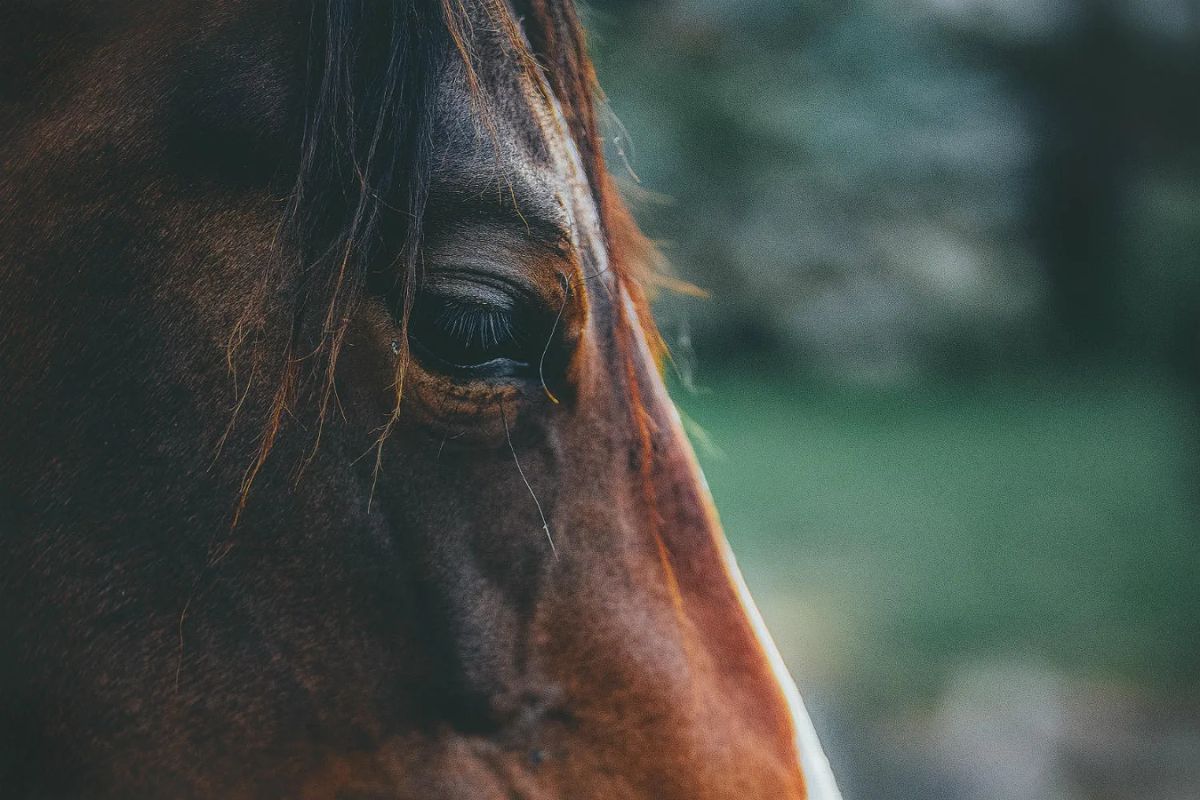Menu

Is your horse showing signs of being stressed, such as being restless or grumpy? There are many factors in a horse's daily life that can contribute to its stress. However, this also means there's a lot you can do to help alleviate the issue. Here are five considerations we've discussed in our editorial team that you might find useful to ponder.
Horses, as we know, are herd animals and therefore need social contact with other horses. But it's equally important for a horse to be able to withdraw from the herd if it doesn't feel comfortable. Often, we humans group horses into smaller herds, and individual paddocks become smaller because we have to divide the total paddock area. This means if a horse doesn't like its herd, it can't get away - and this can stress it. Instead, if you let more horses out into a larger paddock, each horse has a better chance to find its mates and distance itself from those it doesn't get along with. This way, a natural herd structure is formed, consisting of smaller, harmonious herds where all horses are content and relaxed. Ensure there's ample access to food and water so that even the lowest-ranking horses get their share. Otherwise, it can both weaken and stress them.
Read also: 5 training tips for riding the older horse
Being able to move freely is as natural for a horse as being part of a herd. The more a horse is confined in a stable, the greater the chance it becomes stressed and develops what we call "bad habits". When the horse is outside with plenty of space, it can do as it pleases: graze, relax, kick up its heels, or playfully bite its paddock mate. It can't do this to the same extent when confined in a stable. Of course, there might be times when you need to keep the horse inside for part of the day, but if you have a horse that's grumpy or restless in its stable, it might be a sign that it lacks natural stimulation – which it especially gets from being outside and moving freely.
Sometimes, you might need to keep your horse inside for several hours, and in such cases, ensure the horse doesn't get bored.
The best way to keep a horse occupied is by letting it eat. Horses are designed to chew for up to 14 hours a day. When it comes to forage, a hay net with small holes can be good to prolong the chewing time for fast-eating horses. If you can provide your horse with unlimited hay or silage – and if your horse can handle it - that's ideal. It ensures the horse always has something to do. Alternatively, this can be replaced or mixed with seed grass or straw, which has less energy.
Another option is to gift the horse a toy, like a squeaky toy, placed in the stable or hung on a string. You can also buy a ball or a salt lick specifically made for horses. However, a toy will never satisfy the horse's natural need to chew – only forage can – but it can be a good addition.
Read also: When mud fever becomes dangerous…
Introducing variety into the horse's daily life is one of the best ways to prevent or alleviate stress. While horses are creatures of habit, and most can relate to the idea that things in the horse's world should remain consistent, they also need new experiences throughout the day – especially if they spend a lot of time in a stable.
The best thing you can do is to vary the daily training. If you mainly ride in an arena, that's probably where most of the training happens. However, it's equally important to let the horse experience the world outside the arena. For instance, take the horse out for a ride once a week, allowing it to encounter new sensory experiences. If this is new for both of you, you can start with a short walk. Some also use lunging or pole work as a variation, but if you're short on time, even small changes can help. Simply taking the horse out of the stable, grooming it a bit, and putting it back can introduce variety from the hours spent in the stable.
Last but not least, it's about understanding your horse's temperament. While some horses might destress by being able to see their neighbour, the courtyard, or what's happening in the barn, others might prefer a quieter environment. To help your horse cope with stress, it's crucial to understand its personality and individual needs – because only when you truly know your horse can you identify the best approach.